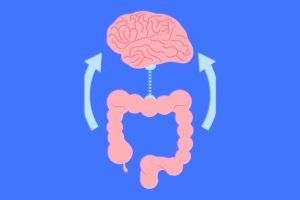A recent study has uncovered a potential connection between COVID-19 infection and an increased risk of stroke and heart attack. While the research provides significant population-level insights, it does not clarify the reasons behind this heightened risk, emphasizing the potential long-term effects on cardiac health associated with COVID-19. Although these findings raise concerns, further studies are essential to validate these results.
Experts recommend that the best strategy for preventing COVID-19-related cardiac issues is to receive the latest vaccine, which is designed to shield against severe illness. As updated COVID-19 vaccines are being rolled out, a new variant named XEC has emerged as a significant focus.
According to data from the Centers for Disease Control and Prevention (CDC), XEC is currently the second most prevalent variant in the United States, following KP.3.1.1. The CDC expresses confidence that the new vaccines will offer adequate protection due to the variant’s lineage. Nevertheless, severe cases of COVID-19—typically requiring hospitalization—can present various long-term risks that may linger for months or even years.
A study published in Atherosclerosis, Thrombosis, and Vascular Biology highlights that individuals hospitalized with COVID-19 face cardiovascular disease risks comparable to those with coronary artery disease, placing them in the same risk category as individuals with diabetes and peripheral artery disease. The research indicates that the risk of experiencing a heart attack or stroke is twice as high for those who have contracted COVID-19, regardless of severity. For those hospitalized with severe COVID-19, the risk of cardiovascular events triples.
Daniel Makowski, DO, a clinical and sports cardiologist at Lehigh Valley Heart and Vascular Institute, noted that concerns regarding cardiac risks from COVID-19 have been present since the pandemic’s inception, although he did not participate in the study. He explained, “Initially, our primary worry was myocarditis, an inflammation of the heart muscle. However, we were unaware of the long-term effects of the virus during the early stages of the pandemic.”
Post-COVID, many patients have reported persistent health issues, particularly relating to the autonomic nervous system, including increased heart rates, fatigue, and various heart rhythm problems, as explained by Makowski.
COVID-19 and Cardiac Event Risks
The research team, consisting of American scientists, analyzed data from the UK Biobank, a prominent health data repository. The study involved 219,673 participants, of whom 10,005 had confirmed cases of COVID-19. Among these, 1,943 individuals experienced severe illness. The study also investigated possible genetic factors and blood type correlations associated with severe COVID-19 and cardiac risk, following participants for a total of 1,003 days.
Findings revealed that individuals hospitalized with COVID-19 who did not have a prior history of heart disease had approximately a 20% increased risk of major adverse cardiac events compared to individuals without COVID-19 but with a history of heart disease. Moreover, those with non-O blood types appeared to be at a higher risk of stroke or heart attack if they were hospitalized with COVID-19.
Although the study does not identify the underlying physiological mechanisms for these increased risks, Dr. Mohanakrishnan Sathyamoorthy, chair of internal medicine at Texas Christian University’s Anne Burnett Marion School of Medicine, emphasizes the study’s importance for medical professionals. “The authors are highlighting the necessity to assess and modify every modifiable cardiovascular risk factor for severe COVID-19 patients, regardless of their history of coronary disease, diabetes, or peripheral arterial disease,” Sathyamoorthy stated, despite not being involved in the study.
Dr. William Schaffner, a professor of infectious disease at Vanderbilt University Medical Center, remarked that the genetic aspects of this research have not been extensively explored across various infectious diseases. “There’s a lot of anecdotal evidence regarding this, and while there may be some truth to it, it hasn’t been thoroughly scientifically investigated. This study represents a preliminary step in that direction,” Schaffner noted.
Understanding the Link Between COVID-19 and Cardiac Risk
A critical next step in this area of research is to determine the reasons behind the observed increased risks. For Makowski and his colleagues, this remains an open question. “Why does this occur? Is it possible that the severity of illness led to some form of vascular injury, making individuals more susceptible to plaque formation or vascular injury? Or is there another contributing factor?” he pondered.
Previous studies have indicated that severe COVID-19 infection significantly raises the risk of heart attack and stroke. However, this latest research adds that the use of antiplatelet medications, commonly prescribed to prevent arterial clotting, may reduce the risk of heart attack or stroke following hospitalization for COVID-19.
Schaffner highlighted the significance of this study in illustrating how infectious diseases can leave lasting effects beyond the initial illness. “This expands our understanding of how infections can trigger inflammatory responses in the body, potentially affecting organ systems well after the acute illness has resolved,” he stated. He further noted that research is beginning to explore these long-term effects, shedding light on the downstream impacts that may persist long after recovery from acute infections.
To minimize the risk of cardiovascular events linked to COVID-19, Schaffner advises that individuals focus on preventing hospitalization through vaccination. “This highlights the severity of COVID-19, indicating that even seemingly healthy individuals may face increased risks for heart attack or stroke. Therefore, it is crucial to take preventive measures, with vaccination being the most effective way to avoid hospitalization due to COVID-19,” Schaffner concluded.
Conclusion
Emerging research suggests a potential link between COVID-19 infection and an increased likelihood of experiencing cardiac events such as stroke or heart attack. While the reasons for this association remain unclear, including the possibility of a genetic component, further investigation is warranted to fully understand these findings.
Experts agree that receiving an updated COVID-19 vaccine is an essential step in preventing severe illness and the subsequent risk of cardiovascular complications.




